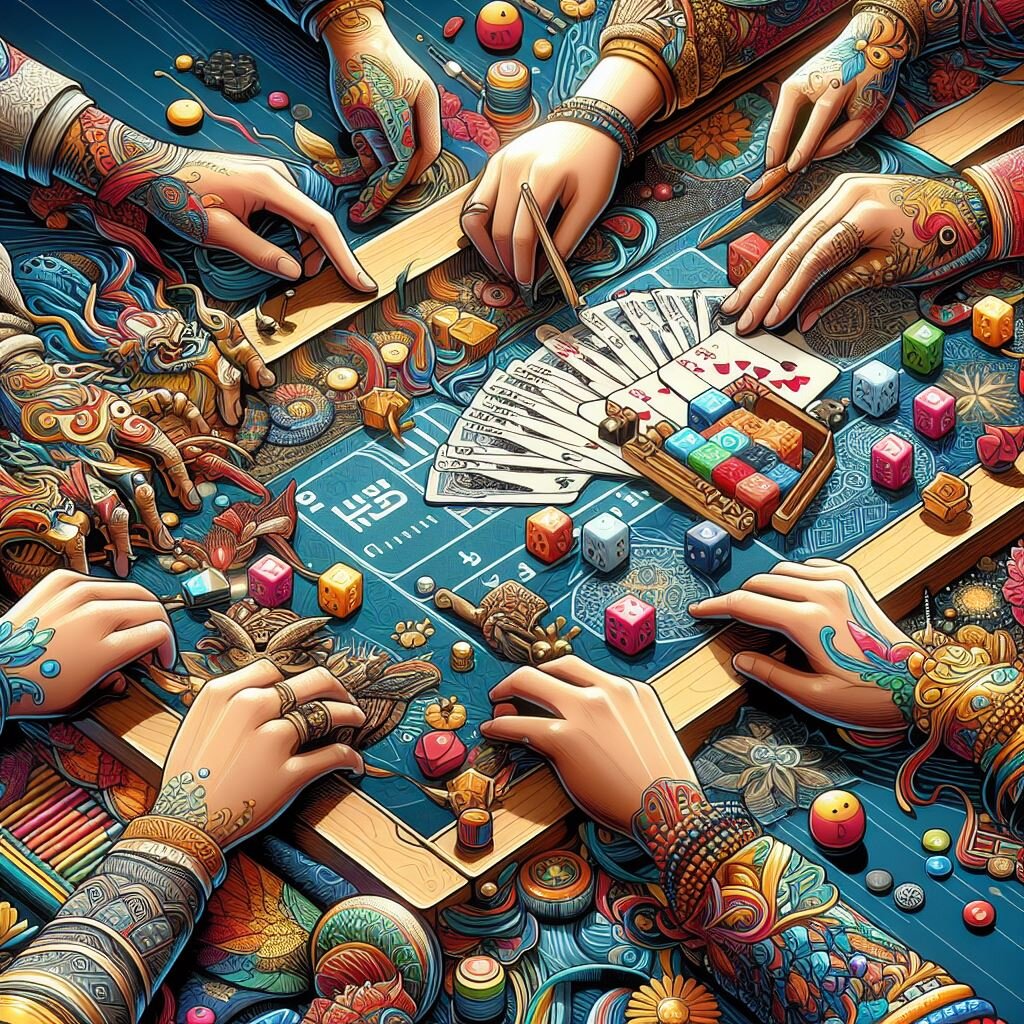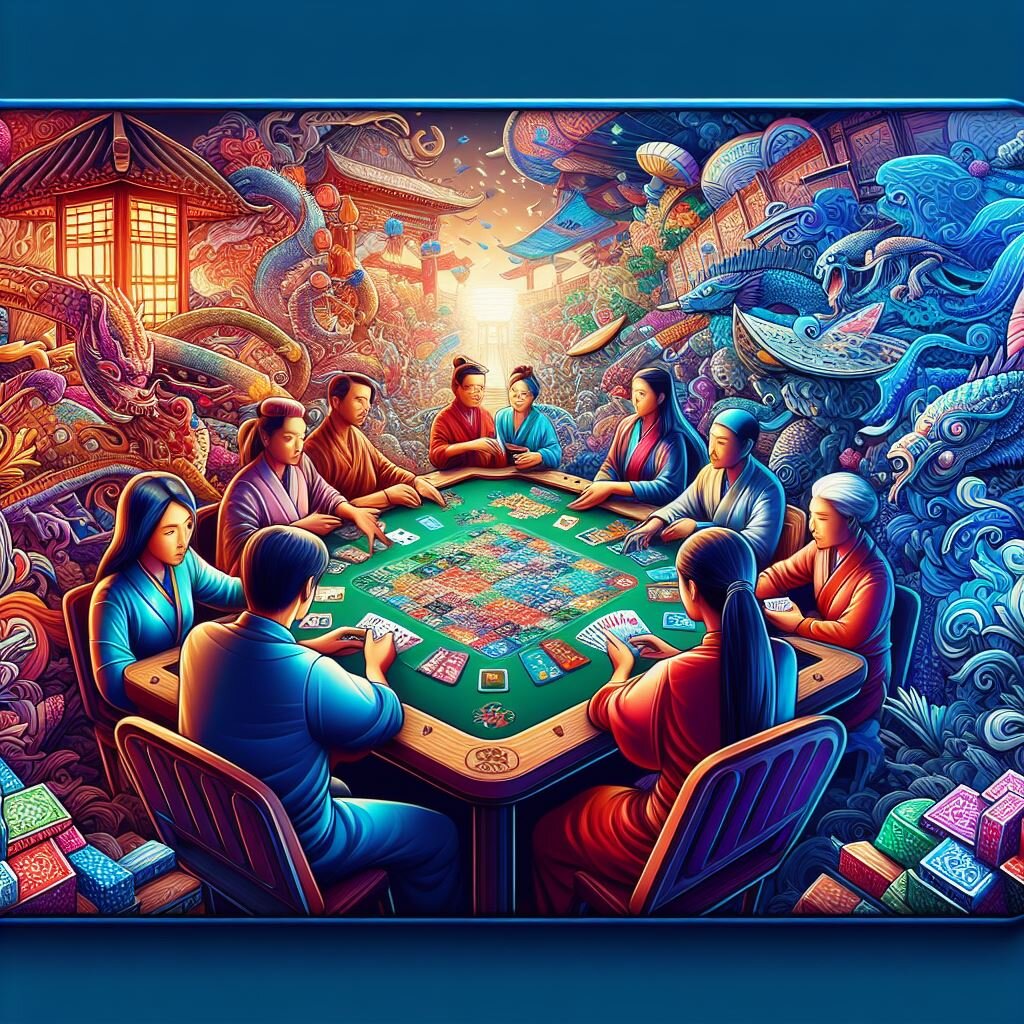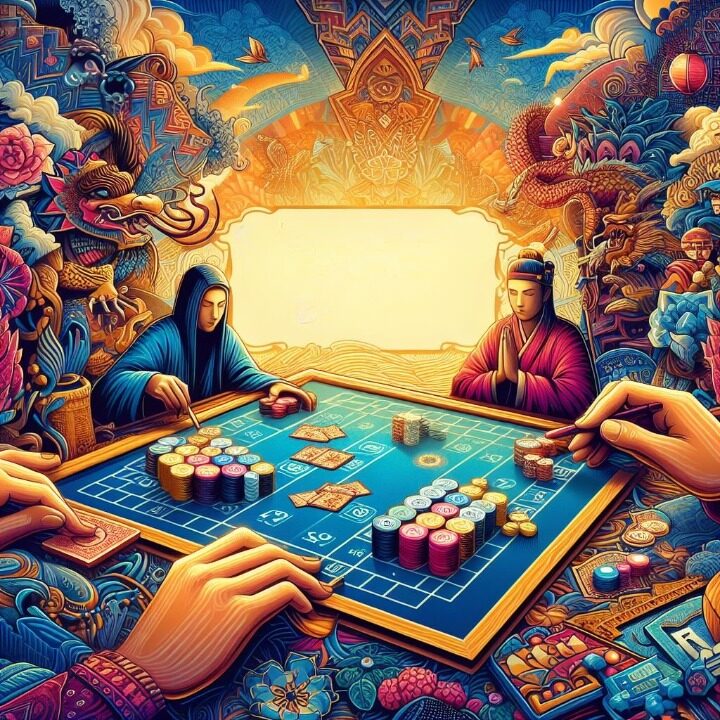tibianordic.com. Cultural Impact of Table Games have long been an integral part of cultures around the world, serving as a source of entertainment, social interaction, and cultural expression. From ancient civilizations to modern societies, table games have played a significant role in shaping social norms, traditions, and values. In this article, we’ll explore the cultural impact of table games and how they serve as a bridge between East and West, bringing people together across diverse cultures and backgrounds.
Cultural Impact of Table Games Significance:
Cultural Impact of Table Games have a rich history that spans thousands of years, with origins dating back to ancient civilizations such as Mesopotamia, Egypt, and China. Games like Senet, played in ancient Egypt, and Go, originating in China, served not only as forms of entertainment but also as reflections of cultural beliefs and values. Over time, these games spread across continents through trade, conquest, and cultural exchange, leaving an indelible mark on the societies they touched.
Social Interaction:
Cultural Impact of Table Games have always been a catalyst for social interaction, bringing people together to engage in friendly competition, camaraderie, and conversation. Whether it’s gathering around a game of chess in a European café or playing mahjong in a bustling Chinese tea house, table games provide a shared experience that transcends language, age, and background. In today’s interconnected world, online platforms and mobile apps have further expanded the reach of table games, allowing people from different cultures to connect and play together regardless of geographical barriers.
Cultural Expression:
Cultural Impact of Table Games often serve as a means of cultural expression, reflecting the values, traditions, and aesthetics of the societies in which they originate. Games like backgammon, popular in the Middle East, and shogi, a Japanese variant of chess, embody unique cultural nuances and strategic thinking styles that have been passed down through generations. By playing these games, individuals not only engage in recreational activities but also immerse themselves in the rich tapestry of cultural heritage and identity.
Bridging East and West:
Cultural Impact of Table Games have played a crucial role in bridging the gap between East and West, facilitating cultural exchange and mutual understanding between different civilizations. Throughout history, games like chess, which originated in India and spread to Persia and Europe, served as conduits for the transmission of ideas, knowledge, and cultural practices across vast distances. Today, globalized gaming markets and multicultural communities enable people from diverse backgrounds to share their love for table games, fostering cross-cultural friendships and collaborations.


Adaptation and Innovation:
As cultures evolve and change, so too do table games, adapting to new technologies, lifestyles, and social norms. Traditional games like poker and blackjack have undergone countless variations and adaptations, reflecting the ever-changing tastes and preferences of players around the world. Moreover, modern gaming platforms and digital technologies have led to the emergence of innovative new table games that blend elements of East and West, catering to diverse audiences and expanding the boundaries of traditional gaming experiences.
Conclusion:
Table games hold a unique place in global culture, serving as a universal language that transcends borders and unites people from different walks of life. Whether it’s the strategic depth of chess, the social dynamics of mahjong, or the thrill of blackjack, table games continue to captivate players around the world, providing a shared space for cultural exchange, social interaction, and personal expression.
As we embrace the diversity of table games and celebrate their cultural significance, we recognize their power to bridge East and West, fostering mutual respect, understanding, and appreciation for the rich tapestry of human experience.
FAQs
1. What is meant by the cultural impact of table games in the context of bridging East and West?
The cultural impact of table games refers to the influence and significance of traditional casino games, such as poker, blackjack, and baccarat, in fostering cultural exchange and understanding between Eastern and Western societies. These games serve as a common ground where people from different cultural backgrounds can come together to enjoy shared experiences.
2. How do table games bridge the gap between Eastern and Western cultures?
Table games bridge the gap between Eastern and Western cultures by providing a universal language of entertainment and social interaction. Regardless of cultural differences, players can bond over the shared experience of playing table games, fostering connections and building relationships that transcend cultural boundaries.
3. What are some examples of table games that have roots in both Eastern and Western cultures?
Some examples of table games that have roots in both Eastern and Western cultures include mahjong, which originated in China but has gained popularity worldwide, and poker, which has its origins in Western card games but has been adapted and embraced by players across Asia and beyond.
4. How do table games contribute to cultural exchange and understanding?
Table games contribute to cultural exchange and understanding by providing opportunities for people from different cultural backgrounds to interact, learn from each other, and gain insights into each other’s traditions, values, and perspectives. Through shared gameplay experiences, players can develop empathy, tolerance, and appreciation for diversity.
5. Where can individuals experience the cultural impact of table games bridging East and West?
Individuals can experience the cultural impact of table games bridging East and West by visiting casinos, gaming establishments, and cultural events that celebrate the diversity of table games and their role in fostering cross-cultural connections. Additionally, online gaming platforms often offer a wide range of table games that attract players from diverse cultural backgrounds, providing opportunities for cultural exchange in virtual spaces.
